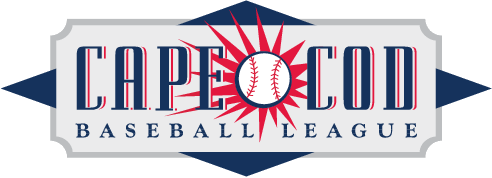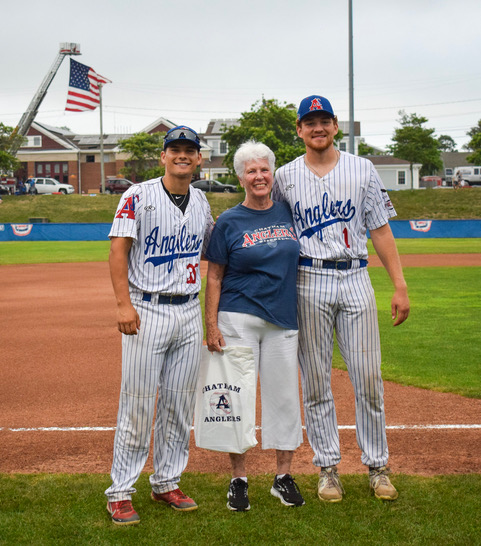Anglers News« Back to 2025 News |
For a 2nd time, Henry Ford is leaving Charlottesville to blossom in Tennessee
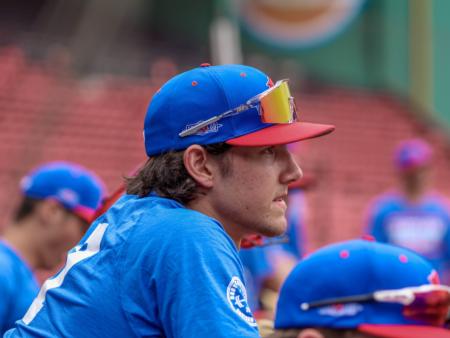
CHATHAM, Mass. — They must’ve forgotten something. Mike Kinney — then a co-head coach at the Baylor School (Tennessee) — had finished making his recruiting pitch. The Fords had just driven away, so Kinney couldn’t possibly fathom why the family was already beginning to turn around.
As he entered his junior year of high school, Henry Ford didn’t need to think twice. Despite the fact he had spent his entire life in Charlottesville, Virginia, he already knew his future was in Chattanooga, Tennessee.
But his mom, Christy, was still on the fence. So, the Fords piled into their car and began pulling off into the distance. They made a single loop around the parking lot, carefully weighing their options as two bald eagles flew above, circling the family. Immediately after, a dumbfounded Kinney watched as the Fords exited the car and walked back toward him.
They hadn’t forgotten anything, in fact. The eagles were simply a sign: Ford belonged in Tennessee.
“There's my son,” Christy said, watching the birds encircle them. “This is your spot.”
As soon as he returned, Ford shared an embrace with Kinney, beginning one of the most transformative experiences of his life. He had grown up minutes away from the University of Virginia. He played his first two high school seasons at St. Anne’s Belfield, a Charlottesville-based private school. And he had been committed to the Cavaliers since his freshman year. But in order to truly blossom, he felt he had to get away.
So, he spent his final two years of high school developing his game at the Baylor School. Ford eventually returned to Charlottesville, where he cemented his legacy as a hometown hero for the Cavaliers. Now, after finishing his sophomore year at Virginia, the Chatham center fielder is again choosing to carve out his own path in Tennessee, leaving his boyhood team to join the Volunteers’ prestigious program next season.
It’s a decision that may not have come to fruition if he hadn’t taken a leap of faith, leaving everything he knew to play at the Baylor School years ago.
“That's the thing,” Red Raiders’ head coach Greg Elie said, “he's not scared to blaze his own path.”
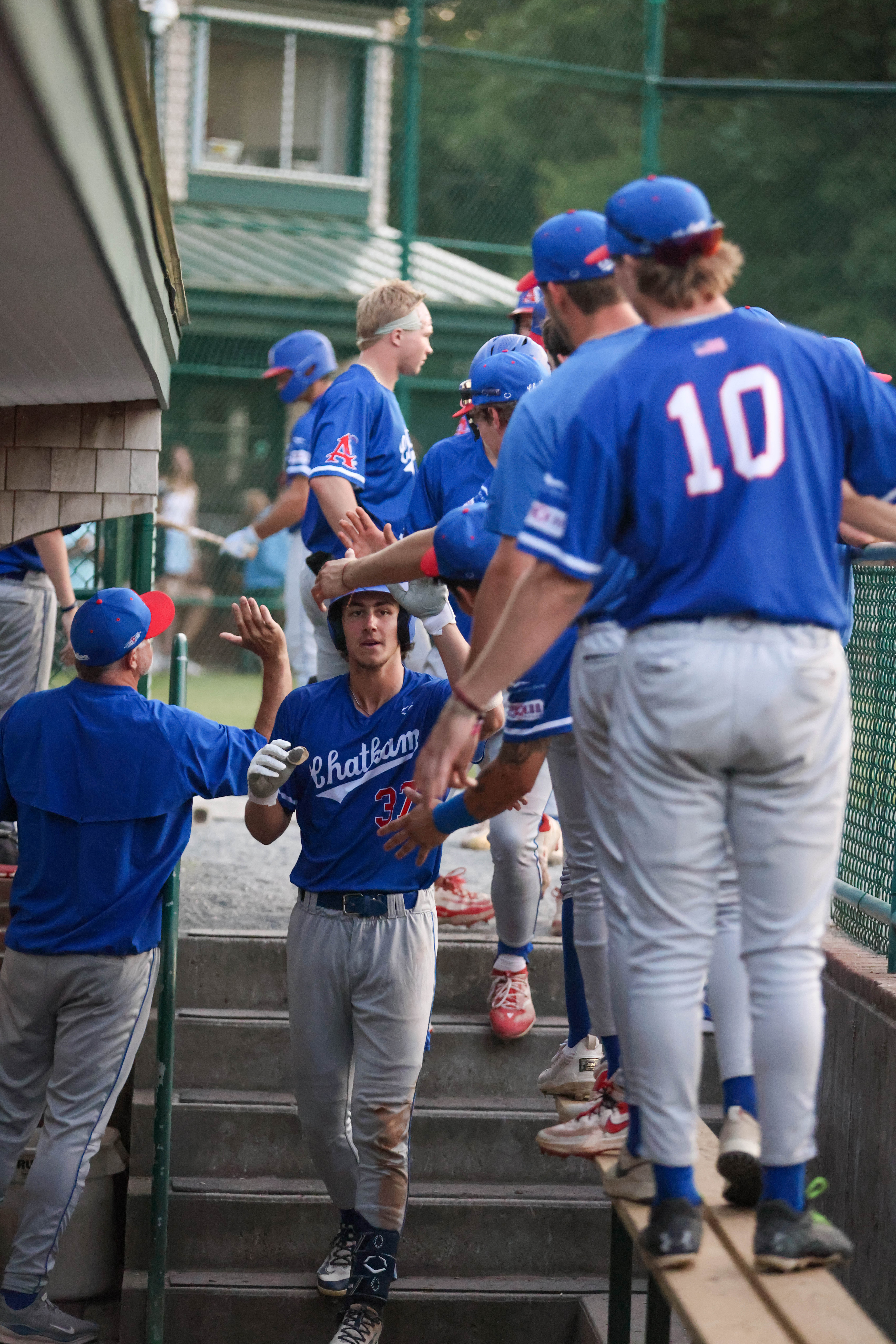
Henry Ford celebrates in the dugout after hitting a game-tying, two-run home run against Cotuit on June 25. After falling into an early deficit, the Anglers ultimately clawed back to tie the Kettleers 7-7. Photograph by Ella Tovey
Though leaving Virginia was never easy for him. From the moment he was born, Ford has been as immersed in the Charlottesville baseball community as one could possibly be.
His uncle, Kevin, starred as a third baseman for the Cavaliers from 1993-96. His father, Ryan, walked-on and pitched a few hours away at William & Mary. And his late grandfather, John, was one of UVA baseball’s most ardent supporters, Ryan told UVA Today.
Decades ago, when UVA first offered baseball season tickets, Ryan decided to purchase a pair as a Christmas gift for John. They were the first Cavalier season tickets ever sold, allowing John to forever claim a piece of history in Disharoon Park: Section 110, seats B3 and B4 — directly behind home plate.
Ford’s first Cavalier game came six months before his first birthday. His grandfather — who lived roughly 90 minutes away in Northern Virginia — would make trips down to Charlottesville, scoop up his grandson and take him to Disharoon hours before games. John was essentially an honorary team member, waltzing into coaches’ offices and chatting their ears off ahead of first pitch.
The tradition continued through his adolescence. With St. Anne’s across the street from Disharoon, Ford began developing a routine. As soon as class ended, he’d walk over to watch the Cavaliers play, never missing a game.
It became clear to everyone around him that he was on a collision course with Virginia’s baseball program, destined to play at the park where he’d grown up watching his heroes.
As a seventh grader, Ford reached out to former UVA head coach Brian O’Connor via email. He began meeting with him soon after, soliciting advice on how to approach his high-school career.
By then, Virginia was a foregone conclusion. He committed in the winter of 2019, and he had started to receive what former UVA player Ethan Anderson dubbed “the Henry Ford Treatment,” going on regular unofficial visits where he would talk to coaches, watch practices and hit with players such as Anderson, Kyle Teel and Griff O’Ferrall.
He knew St. Anne’s wouldn’t prepare him for UVA. Ford felt the program didn’t have the resources to support him, and most of his improvement was coming from independent work.
So, he decided to call the coaches at Virginia, asking if they felt he should stay. They gave him two options: Enroll a year early and redshirt, or head to the Baylor School to play alongside Henry Godbout, a fellow Cavalier commit.
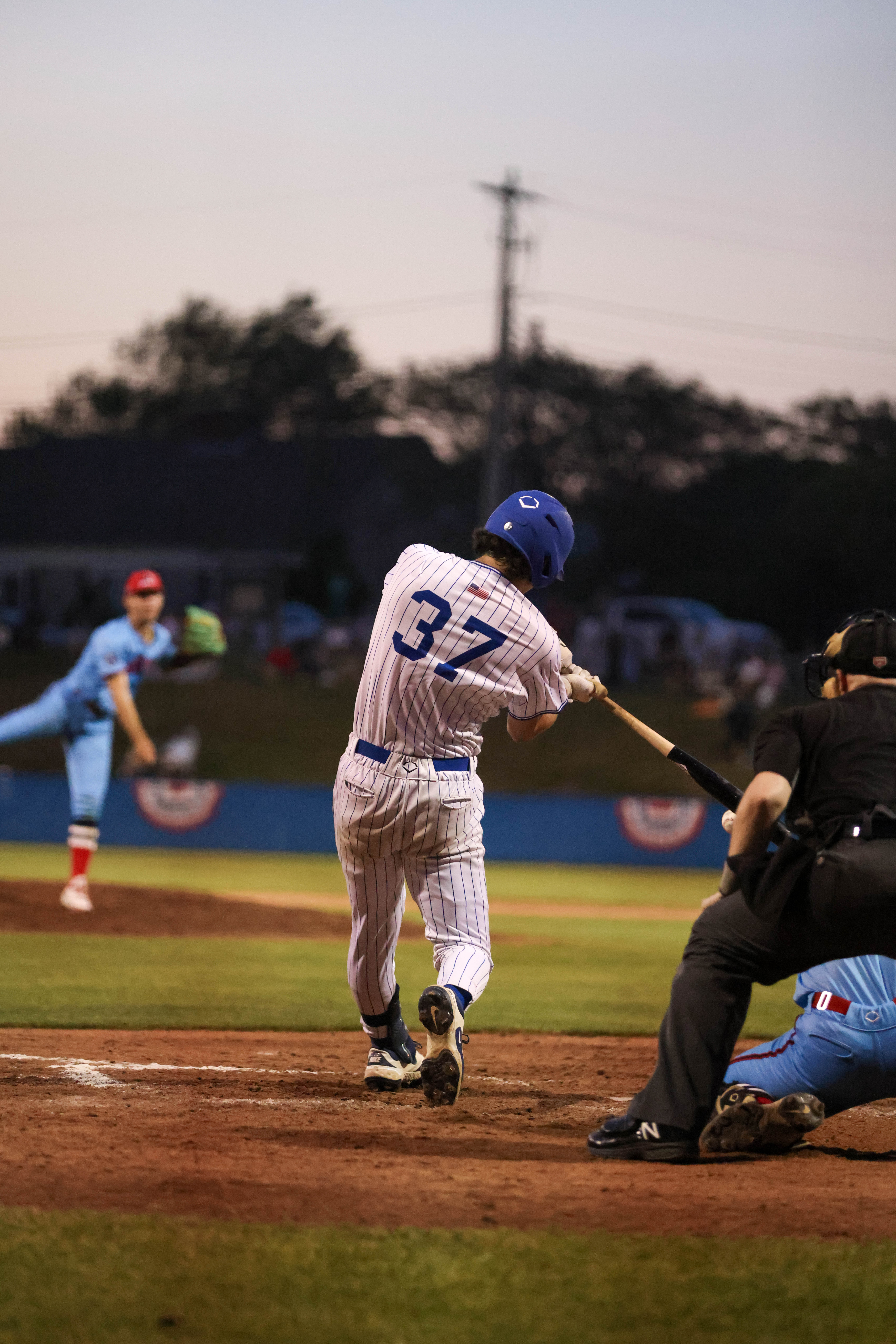
Henry Ford swings at a pitch in Chatham's contest against Harwich on June 24, 2025. Ford currently leads the Anglers with three home runs and 16 runs batted in this season. Photograph by Ella Tovey
Ford desperately wanted to stick it out. He tried to see if it was possible to graduate a year early, but St. Anne’s shut the idea down. Left with no choice, he took a trip to Chattanooga.
“Besides going to UVA, it was the best baseball decision I ever made in my life,” Ford said of committing to the Baylor School.
Three weeks before Kinney first met Ford, he had just dropped off his son, Cooper, at the Tampa Bay Rays’ rookie-ball affiliate in Port Charlotte, Florida. Coming out of the Baylor School, Cooper was drafted 34th overall in the first round of the 2021 MLB Draft. Ford was familiar with him, and once he met Kinney, he made his goals crystal clear.
“I want to do what (Cooper) just did,” Ford told him.
“Well, we just got to do what we started doing everyday,” Kinney replied. “It’s a routine.”
That routine became Ford’s own.
He lifted nearly every day, working with Brice Johnson — the Baylor School’s strength and conditioning coach — to develop his frame. They placed a heavy emphasis on Olympic-style cleans, deadlifts and rotational movements to improve his power.
When Ford wasn’t lifting, he was spending obsessive amounts of time in the batting cages. He began playing 21 Outs with Kinney and Cooper, repetitively drilling pitches in certain locations, such as elevated fastballs or breaking balls low in the zone. To this day, he still hits regularly with Kinney, who now lives in Knoxville, Tennessee. It got to a point where he had to be encouraged to engage in social activities.
“It was like, ‘Hey, Henry, go hang out with those kids,’” Elie said. “‘The bat’s still gonna be here, the ball’s still gonna be here.’”
Eventually, he heeded his coaches’ advice. He formed especially strong bonds with Godbout and Tomas Valincius, both of whom he ended up playing alongside at Virginia.
After each game, Valincius and Ford would walk to their dorm together, listening to the same song repeatedly. Neither of them can place it — Ford says he has a problem of compulsively listening to a song for weeks, and then never touching it again once it’s overplayed.
One time, they spent a weekend together in an apartment owned by one of the Baylor School’s wrestling coaches. Across a span of at least 20 hours, they tackled a Hogwarts Lego set consisting of more than 6,000 pieces and simultaneously watched movies to kill the time.
“That was the kind of stuff we did,” Ford said. “Those were my two best friends.”
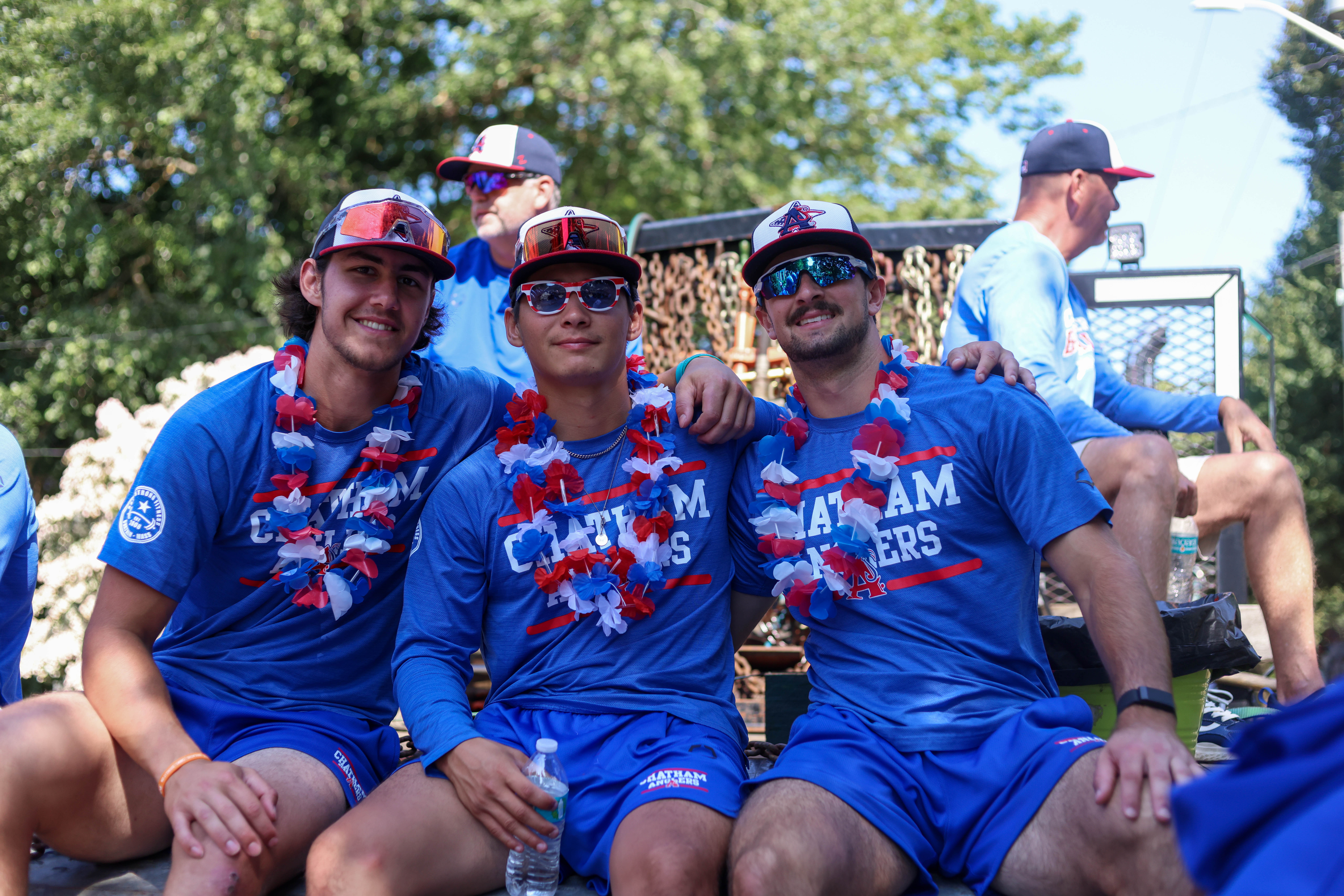
Henry Ford (left) poses alongside Ethan Mendoza and Gavin Gallaher on the Anglers' Fourth of July parade float. Photograph by Ella Tovey
By the time he was a senior, Ford had become one of the top hitters in the state of Tennessee. He cemented his status that April, smacking two line-drive homers in an 11-0 victory over the McCallie School — one of the Red Raiders’ top rivals. McCallie, like every other school Ford faced at the Baylor School, featured commits to top programs such as Ole Miss, North Carolina and Florida.
Facing such robust talent on a regular basis, Ford was more than prepared enough to make the jump to the collegiate level. Upon returning to Charlottesville in 2024, he broke UVA program records in home runs (17) and runs batted in (68) by a freshman.
That year, his coronation came in a 14-11 home victory over then-No. 10 ranked North Carolina. In the first inning, he put the Cavaliers ahead with an early grand slam. Down one in the sixth, he delivered a solo shot to even the game at 11-11. Two innings later, he came up to the plate again, this time against Tar Heel lefty Dalton Pence.
Ford quickly worked a 2-0 count, and with Pence behind early, conventional wisdom said he should’ve expected a fastball on the next pitch.
Yet, Pence offered up an 83 mile per hour changeup. And Ford demolished it over the center-field fence for his third home run of the game, putting UVA up 12-11.
“That should be an automatic whiff or swing through,” Anderson said. “The fact he saw that and was adjustable to that is insane.”
It seemed too good to be true. He was living out his dream on the field he had visited since he was six months old, and after winning 46 games in 2024, the Cavaliers were almost certainly bound for another trip to Omaha in his sophomore season.
But it all collapsed like a house of cards. In 2025, Virginia won 32 games, failed to qualify for the NCAA Tournament and O’Connor departed for Mississippi State at season’s end. The program Ford loved was now unrecognizable.
Merely a few games into his first summer in Chatham, Ford shut the door on a return to Charlottesville. He announced his departure on June 19, posting a thank you letter to Virginia on his Instagram.
At Veterans Field that same day, Anglers assistant coach Tanner Riley stopped him in between rounds of batting practice, asking Ford if he had committed to Tennessee yet. He smiled, nodded his head affirmatively, and the pair wrapped their arms around each other, sharing a brief embrace before Ford entered the turtle for another round of swings, just one more step in his never-ceasing quest for perfection.
As he entered his junior year of high school, Henry Ford didn’t need to think twice. Despite the fact he had spent his entire life in Charlottesville, Virginia, he already knew his future was in Chattanooga, Tennessee.
But his mom, Christy, was still on the fence. So, the Fords piled into their car and began pulling off into the distance. They made a single loop around the parking lot, carefully weighing their options as two bald eagles flew above, circling the family. Immediately after, a dumbfounded Kinney watched as the Fords exited the car and walked back toward him.
They hadn’t forgotten anything, in fact. The eagles were simply a sign: Ford belonged in Tennessee.
“There's my son,” Christy said, watching the birds encircle them. “This is your spot.”
As soon as he returned, Ford shared an embrace with Kinney, beginning one of the most transformative experiences of his life. He had grown up minutes away from the University of Virginia. He played his first two high school seasons at St. Anne’s Belfield, a Charlottesville-based private school. And he had been committed to the Cavaliers since his freshman year. But in order to truly blossom, he felt he had to get away.
So, he spent his final two years of high school developing his game at the Baylor School. Ford eventually returned to Charlottesville, where he cemented his legacy as a hometown hero for the Cavaliers. Now, after finishing his sophomore year at Virginia, the Chatham center fielder is again choosing to carve out his own path in Tennessee, leaving his boyhood team to join the Volunteers’ prestigious program next season.
It’s a decision that may not have come to fruition if he hadn’t taken a leap of faith, leaving everything he knew to play at the Baylor School years ago.
“That's the thing,” Red Raiders’ head coach Greg Elie said, “he's not scared to blaze his own path.”

Henry Ford celebrates in the dugout after hitting a game-tying, two-run home run against Cotuit on June 25. After falling into an early deficit, the Anglers ultimately clawed back to tie the Kettleers 7-7. Photograph by Ella Tovey
Though leaving Virginia was never easy for him. From the moment he was born, Ford has been as immersed in the Charlottesville baseball community as one could possibly be.
His uncle, Kevin, starred as a third baseman for the Cavaliers from 1993-96. His father, Ryan, walked-on and pitched a few hours away at William & Mary. And his late grandfather, John, was one of UVA baseball’s most ardent supporters, Ryan told UVA Today.
Decades ago, when UVA first offered baseball season tickets, Ryan decided to purchase a pair as a Christmas gift for John. They were the first Cavalier season tickets ever sold, allowing John to forever claim a piece of history in Disharoon Park: Section 110, seats B3 and B4 — directly behind home plate.
Ford’s first Cavalier game came six months before his first birthday. His grandfather — who lived roughly 90 minutes away in Northern Virginia — would make trips down to Charlottesville, scoop up his grandson and take him to Disharoon hours before games. John was essentially an honorary team member, waltzing into coaches’ offices and chatting their ears off ahead of first pitch.
The tradition continued through his adolescence. With St. Anne’s across the street from Disharoon, Ford began developing a routine. As soon as class ended, he’d walk over to watch the Cavaliers play, never missing a game.
It became clear to everyone around him that he was on a collision course with Virginia’s baseball program, destined to play at the park where he’d grown up watching his heroes.
As a seventh grader, Ford reached out to former UVA head coach Brian O’Connor via email. He began meeting with him soon after, soliciting advice on how to approach his high-school career.
By then, Virginia was a foregone conclusion. He committed in the winter of 2019, and he had started to receive what former UVA player Ethan Anderson dubbed “the Henry Ford Treatment,” going on regular unofficial visits where he would talk to coaches, watch practices and hit with players such as Anderson, Kyle Teel and Griff O’Ferrall.
He knew St. Anne’s wouldn’t prepare him for UVA. Ford felt the program didn’t have the resources to support him, and most of his improvement was coming from independent work.
So, he decided to call the coaches at Virginia, asking if they felt he should stay. They gave him two options: Enroll a year early and redshirt, or head to the Baylor School to play alongside Henry Godbout, a fellow Cavalier commit.

Henry Ford swings at a pitch in Chatham's contest against Harwich on June 24, 2025. Ford currently leads the Anglers with three home runs and 16 runs batted in this season. Photograph by Ella Tovey
Ford desperately wanted to stick it out. He tried to see if it was possible to graduate a year early, but St. Anne’s shut the idea down. Left with no choice, he took a trip to Chattanooga.
“Besides going to UVA, it was the best baseball decision I ever made in my life,” Ford said of committing to the Baylor School.
Three weeks before Kinney first met Ford, he had just dropped off his son, Cooper, at the Tampa Bay Rays’ rookie-ball affiliate in Port Charlotte, Florida. Coming out of the Baylor School, Cooper was drafted 34th overall in the first round of the 2021 MLB Draft. Ford was familiar with him, and once he met Kinney, he made his goals crystal clear.
“I want to do what (Cooper) just did,” Ford told him.
“Well, we just got to do what we started doing everyday,” Kinney replied. “It’s a routine.”
That routine became Ford’s own.
He lifted nearly every day, working with Brice Johnson — the Baylor School’s strength and conditioning coach — to develop his frame. They placed a heavy emphasis on Olympic-style cleans, deadlifts and rotational movements to improve his power.
When Ford wasn’t lifting, he was spending obsessive amounts of time in the batting cages. He began playing 21 Outs with Kinney and Cooper, repetitively drilling pitches in certain locations, such as elevated fastballs or breaking balls low in the zone. To this day, he still hits regularly with Kinney, who now lives in Knoxville, Tennessee. It got to a point where he had to be encouraged to engage in social activities.
“It was like, ‘Hey, Henry, go hang out with those kids,’” Elie said. “‘The bat’s still gonna be here, the ball’s still gonna be here.’”
Eventually, he heeded his coaches’ advice. He formed especially strong bonds with Godbout and Tomas Valincius, both of whom he ended up playing alongside at Virginia.
After each game, Valincius and Ford would walk to their dorm together, listening to the same song repeatedly. Neither of them can place it — Ford says he has a problem of compulsively listening to a song for weeks, and then never touching it again once it’s overplayed.
One time, they spent a weekend together in an apartment owned by one of the Baylor School’s wrestling coaches. Across a span of at least 20 hours, they tackled a Hogwarts Lego set consisting of more than 6,000 pieces and simultaneously watched movies to kill the time.
“That was the kind of stuff we did,” Ford said. “Those were my two best friends.”

Henry Ford (left) poses alongside Ethan Mendoza and Gavin Gallaher on the Anglers' Fourth of July parade float. Photograph by Ella Tovey
By the time he was a senior, Ford had become one of the top hitters in the state of Tennessee. He cemented his status that April, smacking two line-drive homers in an 11-0 victory over the McCallie School — one of the Red Raiders’ top rivals. McCallie, like every other school Ford faced at the Baylor School, featured commits to top programs such as Ole Miss, North Carolina and Florida.
Facing such robust talent on a regular basis, Ford was more than prepared enough to make the jump to the collegiate level. Upon returning to Charlottesville in 2024, he broke UVA program records in home runs (17) and runs batted in (68) by a freshman.
That year, his coronation came in a 14-11 home victory over then-No. 10 ranked North Carolina. In the first inning, he put the Cavaliers ahead with an early grand slam. Down one in the sixth, he delivered a solo shot to even the game at 11-11. Two innings later, he came up to the plate again, this time against Tar Heel lefty Dalton Pence.
Ford quickly worked a 2-0 count, and with Pence behind early, conventional wisdom said he should’ve expected a fastball on the next pitch.
Yet, Pence offered up an 83 mile per hour changeup. And Ford demolished it over the center-field fence for his third home run of the game, putting UVA up 12-11.
“That should be an automatic whiff or swing through,” Anderson said. “The fact he saw that and was adjustable to that is insane.”
It seemed too good to be true. He was living out his dream on the field he had visited since he was six months old, and after winning 46 games in 2024, the Cavaliers were almost certainly bound for another trip to Omaha in his sophomore season.
But it all collapsed like a house of cards. In 2025, Virginia won 32 games, failed to qualify for the NCAA Tournament and O’Connor departed for Mississippi State at season’s end. The program Ford loved was now unrecognizable.
Merely a few games into his first summer in Chatham, Ford shut the door on a return to Charlottesville. He announced his departure on June 19, posting a thank you letter to Virginia on his Instagram.
At Veterans Field that same day, Anglers assistant coach Tanner Riley stopped him in between rounds of batting practice, asking Ford if he had committed to Tennessee yet. He smiled, nodded his head affirmatively, and the pair wrapped their arms around each other, sharing a brief embrace before Ford entered the turtle for another round of swings, just one more step in his never-ceasing quest for perfection.
